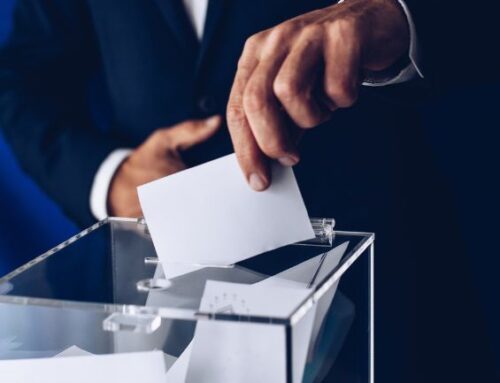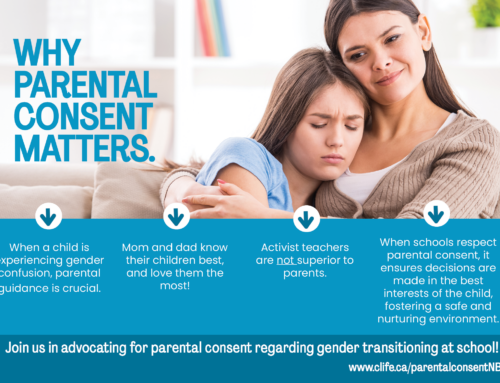 Depending on what you read on my Facebook page this month, the election of Donald Trump to the U.S. presidency was either the onset of fascism on American soil or the beginning of the return of American greatness. There was little in the way of middle ground, and keep in mind that the majority of my friends on social media are Canadians, unable to vote in the U.S. election and about as personally invested in the outcome as they’d be in, say, American college football, or English Premier League soccer.
Depending on what you read on my Facebook page this month, the election of Donald Trump to the U.S. presidency was either the onset of fascism on American soil or the beginning of the return of American greatness. There was little in the way of middle ground, and keep in mind that the majority of my friends on social media are Canadians, unable to vote in the U.S. election and about as personally invested in the outcome as they’d be in, say, American college football, or English Premier League soccer.
The near-hysterical – and sometimes outright hysterical – reactions were simple shock: Clinton supporters couldn’t believe she lost, and Trump supporters were astounded that he’d won. Neither side seemed emotionally prepared for the outcome, so it was probably inevitable that their reactions were so raw and intemperate, and a whole day seemed to pass before one side began tentatively exploring their inability to see what now looked obvious, while the other overcame their amazement just enough to begin wondering what a Trump presidency actually meant, now that it was more than just a rejection of Hillary Clinton.
I can’t speak to whatever political discourse might have been happening on all the other social media. If people were freaking out on Twitter, Tumblr or Instagram I didn’t notice, as I barely pay any attention to my Twitter account any more, and Tumblr and Instagram are (for me, at least) really just online slideshows. (Twitter usage has apparently dropped by half since its peak in the summer of 2014, so apparently I’m not alone in my disinterest.)
It was Facebook, though, that allowed these raw emotions to spill out all over the computer screen, however, with its lack of a word limit and an interface that captures the messy social hurly-burly of a party where nearly every one of your friends, family, peers, former schoolmates, and casual acquaintances have shown up with their friends. In less turbulent times, my devotion to Facebook is easy enough to describe: Working from home, it lets me look over my virtual cubicle wall and see what everyone else is doing and thinking. Apparently my lifelong misanthropy isn’t so chronic that I don’t crave some social interaction, even if it’s from behind a digital barrier.
I probably spend more time on Facebook now than on any conventional media website, and this would be significant even if I wasn’t nominally employed by the mainstream media. According to a recent story in the New York Times Magazine, Facebook has become a deciding factor in online political engagement, and was probably a major factor in the election, and one that would probably have given a hint of Trump’s “unpredictable” victory, had anyone been paying attention.
After delving for many thousands of words into the partisan political pages that exploded on Facebook during the election – many of them providing links to clickbait sites loaded to the gunnels with slow-loading ads – the writers wonder “whether the site’s churning political warfare is actually changing minds – or, for that matter, beginning to change the political discourse as a whole. How much of what happens on the platform is a reflection of a political mood and widely held beliefs, simply captured in a new medium, and how much of it might be created, or intensified, by the environment it provides?”
“What,” they ask, “is Facebook doing to our politics?
It’s a disingenuous question, especially when asked by one of the standard-bearers of the old media. After the election, the Times’ Public Editor, Liz Spayd, wrote a column cataloguing complaints by readers that the “paper of record” had dropped the ball so badly – and so early – on the Trump win, with election coverage that was so nakedly partisan to the Clinton side.
“Readers complain heatedly and repeatedly about the forecasting odometer from The Upshot that was anchored on the home page and predicted that Hillary Clinton had an 80 percent chance or better of winning,” Spayd wrote. “They complain that The Times’s attempt to tap the sentiments of Trump supporters was lacking. And they complain about the liberal tint The Times applies to its coverage, without awareness that it does.”
I would dispute that The Times isn’t aware of its bias; from my experience of newsrooms, the problem is the lack of shame that reporters and editors have about their bias. Spayd finds time at the end of her column to congratulate the paper’s liberal readers for their superior instincts, though: “I found myself wishing someone from the newsroom was on the line with me, especially to hear how many of the more liberal voters wanted more balanced coverage. Not an echo chamber of liberal intellectualism, but an honest reflection of reality.”
I wonder how much people really want to escape the echo chamber. Facebook’s great success as a media platform during this election came from allowing its readers to build and customize their echo chamber, with just enough outside noise to flatter yourself that you were getting something like an “objective” worldview. You could keep all those liberal or conservative friends and relatives in your friend list, but mute their annoying rants and shares with a simple click of the “unfollow” button. Only in the most extreme circumstances would you ever reach for the nuclear option of the Facebook “block” and banish someone to the status of Facebook persona non grata.
And like so much of the internet, it makes it so much easier to forget that you’re dealing with actual people some of whom you might actually like. I didn’t keep close tabs, but by the morning of Nov. 9, I knew that I’d lost at least one friend. It wasn’t just a Facebook “friend” either, but someone who I knew and liked, the husband of an old friend. We’d been to their house and even spent a weekend at their cottage. We knew that our politics didn’t exactly overlap, but up until this election I’d assumed that we could always keep this difference amicable. After all, it was only politics.
A day before voting began we got into a dispute about Hillary Clinton’s reputation, which I thought was far more of a negative than he did. I made a point of mentioning Benghazi, and marveled that the murder of a U.S. ambassador was being treated as just one of those things that happened in the course of a secretary of state’s career, and not a career-damaging proof of poor judgment. He didn’t agree, accused me of “dog whistling,” and exited the comments section in an obvious rage.
Two days later – and after it became obvious that the American voters seemed to share my lack of confidence in Hillary Clinton – I saw that he’d “unfriended” me, a downgrade in status that I fear might extend to real life as well. I’m not even going to pretend that my feelings aren’t hurt, but what’s worse is that it was politics that caused the rift – and even worse, the politics of another country. It’s like losing a friend because I didn’t think Mercedes Benz deserved to win Formula 1 again.
Face to face, we might have been able to work our way to a more amicable conclusion, especially if we were in each other’s homes for the duration of a dinner party, or at a cottage on an island. Online, however, opinions are weaponized and social niceties abandoned; it’s a bear pit, and everyone is fighting to win. I abandoned my Luddite skepticism of the internet many years ago, but it’s at times like this that I wonder if all this immediate gratification is coming at a cost.




